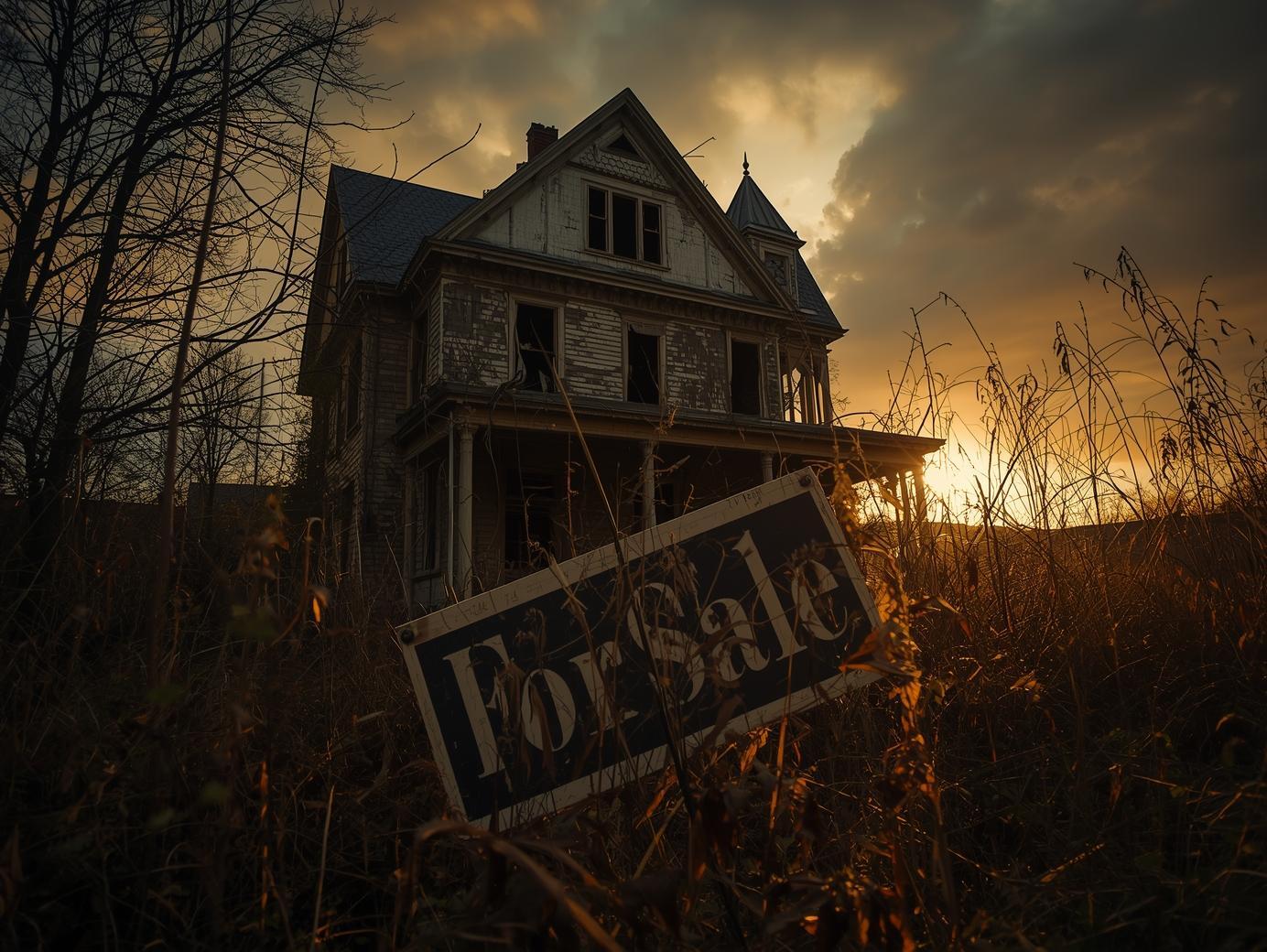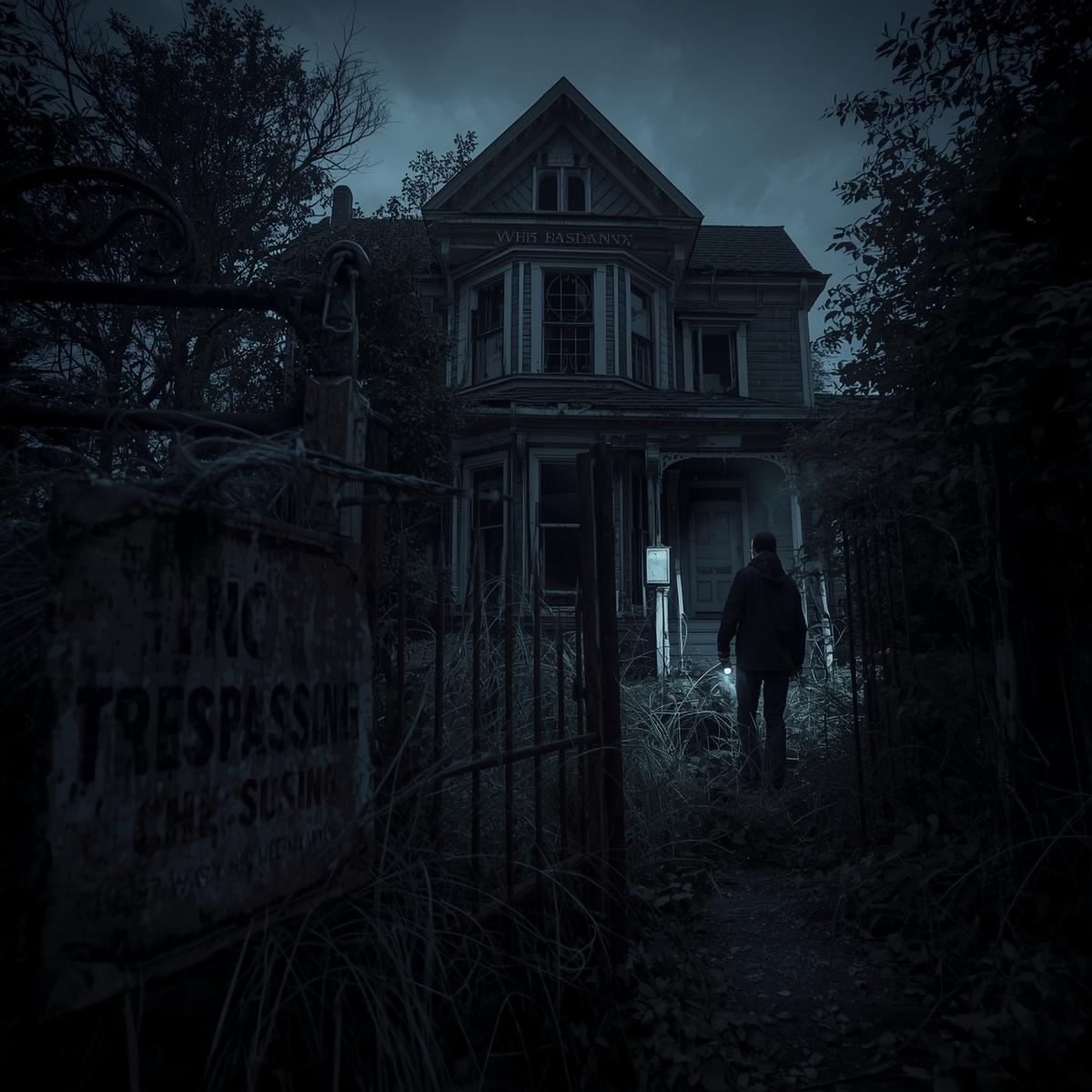Do you want to learn more about the world of abandoned homes? Abandoned properties present special opportunities and lots of questions, whether you're searching for inexpensive real estate, a fixer-upper, or an urban exploration experience. Using learning and online visibility, this in-depth guide will take you through the definition of abandoned houses, how to locate them, the legal boundaries, investment strategies, and more.

What Is an Abandoned House?
A residential property that has been unoccupied for a long time is known as an abandoned house. Overgrown lawns, broken windows, peeling paint, and occasionally structural damage are typical indicators of neglect in these homes. The last registered owner typically retains ownership, but the house is left empty and without regular upkeep or care. Financial difficulties, moving, foreclosure, or inheritance problems are frequently the underlying reasons why a home becomes vacant and dilapidated.
Can You Claim an Abandoned House?
One common question is: “Can I just walk into a vacant house and call it mine?” Unfortunately, the process of claiming abandoned property is far more complex than
movies make it seem. In most places, real estate laws protect even the most deserted homes, and there are strict steps required for anyone hoping to turn an abandoned
house into their own address.
The legal route is through “adverse possession,” a process that generally requires you to occupy the home openly and continuously for several years, pay the property
taxes, and demonstrate that you are treating the home as your own. Only after fulfilling these requirements over a legally defined period can you even attempt to claim
title to the property.
The path is slow and requires a deep understanding of local property rights, land records, and municipal codes.
Is It Illegal to Search or Enter an Abandoned House?
Both occupied and abandoned homes are protected by trespassing laws. Even if no one is inside, it is usually illegal to enter someone else's property without their
consent.
This implies that entering these areas could result in fines, arrests, or legal action against urban explorers or inquisitive neighbors.
Understanding the distinctions between private property and public access is essential. Getting permission from the owner or local authorities is the safest and most
lawful way to enter an abandoned home. Municipalities may occasionally manage programs that grant registered businesses or individuals access to these properties
for redevelopment, cleaning, or safety inspections.
Is Buying Abandoned Property Worth It?
Purchasing an abandoned home may present a special chance to invest in real estate. Compared to traditional homes on the market, prices are typically lower and
competition is less intense. Nevertheless, investing in abandoned real estate has its own set of difficulties.
Pros:
Affordable entry price compared to market-ready homes
Potential for high return on investment after renovation
Opportunity to customize the property entirely to personal preferences
Cons:
Many abandoned houses need significant repairs—roof replacement, mold removal, plumbing overhaul, or foundation fixes can be costly
Title and ownership issues may exist, including unpaid taxes or lingering heirs
Financing is sometimes harder to secure, as lenders may view distressed properties as risky
Especially in developing neighborhoods, astute investors frequently recognize the potential in these dilapidated houses. Speaking with the local government A
representative, a home inspector, and a real estate lawyer can help first-time buyers avoid making the purchase a hassle.
What Is the Most Common Type of Unclaimed Property?
When people talk about “unclaimed property,” they often imagine forgotten real estate. In reality, the most common unclaimed assets are financial:
Unclaimed bank accounts
Old paychecks or government checks were never cashed
Forgotten retirement accounts
Stocks or dividends from dormant investments
Safe deposit box contents
Each year, millions of dollars are held by government offices for rightful owners to claim. There are online tools and state websites that can help individuals search for
and recover these lost assets. While abandoned houses may grab attention for their visual mystery, unclaimed money and financial accounts are far more common.
How to Find an Abandoned House
Wondering how to spot or discover abandoned homes in your area? Here are the best strategies:
Drive through neighborhoods and look for clear neglect: boarded windows, overflowing mailboxes, and overgrown landscaping are common clues.
Search public property records for tax-delinquent properties, which often indicate that the home is vacant or neglected.
Attend foreclosure auctions or contact local government offices for lists of nuisance properties.
Leverage local real estate agents specializing in distressed or off-market properties.
Network with urban explorers or property investors who may have leads on vacant homes ripe for restoration.
Check online platforms dedicated to distressed properties; some websites list vacant and bank-owned homes.
Research zoning and development maps—sometimes properties earmarked for demolition are slated as “abandoned” in municipal records.
Remember, just because a house is empty doesn’t mean it’s available for entry or purchase. Always do due diligence!
Can You Take Things from an Abandoned House?
The answer is almost always no. Removing items from an abandoned home is usually considered theft, even if the property looks deserted. Ownership and possession
laws protect everything on the premises until the legal owner decides otherwise. Some cities run official auctions for the contents of properties officially seized or
repossessed, but casual or opportunistic removal is both unsafe and illegal.

Can You Go Inside an Abandoned House?
Entering a vacant home without permission is illegal in nearly every circumstance. This holds true regardless of how rundown, dangerous, or unwanted the property appears. If a local government has officially condemned the property or labeled it as open for redevelopment, there may be safe and legal ways to enter—often with supervision and proper documentation. Otherwise, respect boundaries and avoid potential legal trouble.
Hidden Risks and Rewards of Abandoned Homes
For all their mystique, abandoned homes present real challenges:
Structural damage: Years of neglect can make floors, roofs, and walls unsafe.
Health hazards: Mold, asbestos, pests, and lack of utilities increase risk.
Legal uncertainty: Title issues and unpaid taxes can prevent ownership transfer.
Neighbors’ concerns: Long-term neglect can hurt surrounding property values and community security.
Yet for those willing to put in the time, work, and money, this is also where hidden gems are found. The first step is always to perform a thorough inspection, consult
building codes, and talk with local officials about renovation permits and incentives.
How to Approach Abandoned Property as a First-Time Buyer
Are you a first-time real estate investor considering an abandoned house? Here’s a simple roadmap:
Research the legal owner using city or county property records.
Make contact—ask if the owner is interested in selling or settling debts on the home.
Inspect safely—never enter without permission; when you do, bring an expert for a professional home inspection.
Calculate renovation costs by getting estimates on all required repairs.
Understand your financing options with banks, lenders, or renovation loans designed for distressed properties.
Negotiate and formalize with a detailed sale agreement and a real estate attorney.
The process is not for the faint of heart, but with the right strategy, patience, and help from experts, distressed property can become a profitable venture or unique
dream home.
Final Thoughts - Turning Abandoned Spaces Into New Opportunities
Abandoned houses aren’t just structures left behind; they’re stories waiting for a new chapter. Whether you want to buy, renovate, or simply explore, understanding the
essentials—
legalities, risks, and rewards—is key. With the right mindset and research, these forgotten homes can offer a pathway to investment success, personal satisfaction, and
neighborhood revitalization.
So next time you pass by a boarded-up building or overgrown lot, see not just the present neglect but the future possibilities. Abandoned houses are more than mysteries—
they’re potential in the making.
If you found this guide helpful, share it with fellow real estate enthusiasts and aspiring investors looking for fresh opportunities in today’s evolving property market.
And remember: knowledge, preparation, and respect for the law turn risk into reward, one abandoned house at a time.

